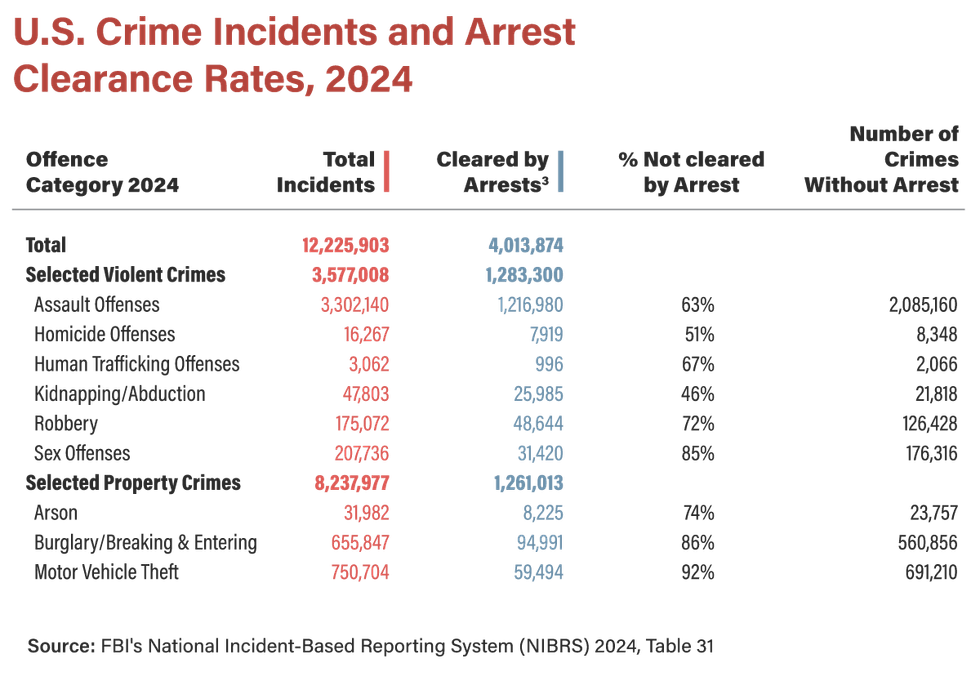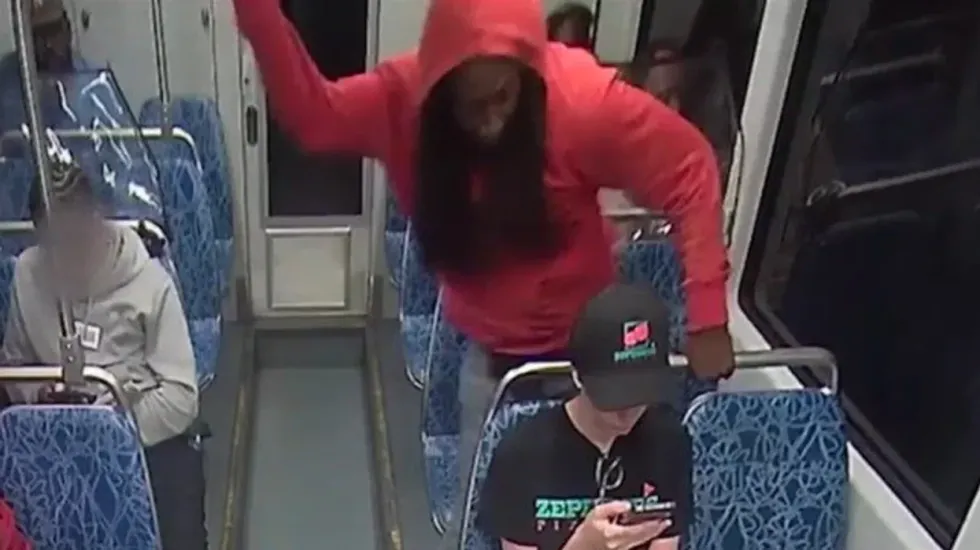Republicans might finally take me seriously after years of warning: America suffers not from mass incarceration, but from mass under-incarceration. The system needs tougher sentences, not softer ones.
The brutal murder of 23-year-old Ukrainian refugee Iryna Zarutska, allegedly at the hands of career criminal Decarlos Brown Jr. on a Charlotte commuter train, didn’t reveal anything new. It shocked the nation precisely because it put on camera what has become routine in our cities since the bipartisan “criminal justice reform” wave dismantled Reagan-era tough-on-crime policies.
Legislators will have a choice when they reconvene: Pass strong reforms like these or watch more innocent people die.
For every man like Brown who slipped through the cracks, at least 10 more walk free when they should be locked up for life.
Brown had been arrested 14 times since 2007. His record included assault, felony firearms possession, robbery, and larceny. He didn’t see the inside of a prison until 2014, when an armed robbery conviction earned him a mere four years. He racked up more arrests after his release in 2020, but neither prison nor psychiatric commitment followed. The justice system looked the other way.
The result was predictable. Brown’s obvious mental instability made him even more dangerous than an ordinary criminal. Yet over the last 15 years, Republicans and Democrats alike embraced “reform” that made second chances for the violent and insane a top priority. They weakened sentencing, gutted mandatory minimums, downgraded juvenile crimes, eased up on drugs and vagrancy, and abandoned broken-windows policing. Hard-won gains against crime and homelessness evaporated.
The final insult: Brown was last released on cashless bail by North Carolina Magistrate Judge Teresa Stokes, allegedly affiliated with a pro-criminal “second chances” group. But violent offenders don’t just get second chances. They get third, fourth, and 15th chances. Most criminals never even face charges. Prosecutors downgrade cases. Convicts skate on early release. The cycle spins on.

Look at the numbers. In 2024, the FBI’s incident-based reporting system logged over 12.2 million crimes. Strip away drug and gun cases, and the picture remains grim: 2.4 million violent crimes with no arrest. Another 1.25 million serious property crimes — arson, burglary, motor vehicle theft — with no arrest. Every year, more than a million offenders escape justice. Meanwhile, the nation’s prison and jail population sits at roughly 1.9 million.
Even when police make arrests, punishment rarely follows. In 2021, only 15,604 people went to prison for robbery despite 121,000 reported incidents. Just 4,894 went away for car theft out of 550,000 cases. Even homicide convictions lag far behind — just 6,081 murderers entered prison against more than 15,000 killings.
This isn’t a statistical fluke. It’s a system that fails to punish violent crime year after year.
RELATED: Iryna Zarutska’s name should shame the woke
 Screenshot/Charlotte Transit Authority
Screenshot/Charlotte Transit Authority
So what needs to change? Here’s a checklist every state legislature should adopt in the next session:
- Ban public encampments on streets, sidewalks, and public property; allow lawsuits against localities that fail to enforce.
- Elevate porch piracy penalties, following Florida’s lead.
- Impose stiff punishments for organized retail theft and flash mobs.
- Tighten “truth-in-sentencing” laws to ensure violent offenders serve their full terms.
- Pass anti-gang statutes that cross county lines, fund prosecutions, and mandate enhanced sentences for gang-related crimes.
- Let prosecutors, not judges, decide whether to try violent juveniles as adults.
- Set mandatory minimums for carjackings, especially for repeat offenders.
- Impose harsh sentences on felons caught with firearms, and harsher still when they use them.
- Require parole violators to finish their sentences.
- Hold repeat offenders without bond; revoke pretrial release when new crimes are committed.
- Fund prosecutors’ offices to clear the backlog of violent felony cases.
- Strengthen “three strikes” laws to eliminate loopholes.
- Apply the death penalty to fentanyl traffickers.
- Mandate quarterly public reporting of judges’ sentencing records in a searchable database.
- Criminalize squatting and streamline removal.
Legislators will have a choice when they reconvene: Pass strong reforms like these or watch more innocent people die.
Social media outrage won’t fix this crisis. Neither will empty calls for “accountability.” As Iryna’s grieving family warned, “This could have been anyone riding the light rail that night.”
That’s the truth — and unless lawmakers act, it will be the truth again tomorrow.
The post Second chances kill innocents appeared first on TheBlaze.




